The Last Orellen - Chapter 5: Luck Magic
Chapter 5: Luck Magic
Luck Magic
Everyone knew luck magic was a pointless field of study.
Toss a coin a thousand times, and the luck mage will win five hundred and one. It was plain truth.
Spatial magic at the lower levels was barely useful. Low level luck magic was actually detrimental. Even a cautious user’s chances of making a mistake were far higher than any chance of success. And the successes one did achieve would always be small.
The whole field was more of a historical curiosity than anything else these days. None of the serious magical families would grant one of their members the resources needed to study it.
So when Iven Orellen’s magical propensity was tested in his youth, and found to be luck magic, he was immediately given his choice of the family’s available tutors. Obviously, his elders reasoned, his training in another discipline would need to begin as soon as possible. He was a smart boy, with good base levels of power. In a few years, if he applied himself, he might be able to catch up with his peers even in a field he was less inclined toward.
Iven dutifully chose a master who specialized in object enchantment. It was considered a particularly valuable skillset in a merchant family, and since he had to start from the beginning, he might as well make everyone happy.
He worked hard. He worked very, very hard. He worked while the other children played, carving runes until his fingers shook, forcing mana into the necessary patterns even though it felt like trying to blow mud through a reed.
He…wasn’t terrible at it.
But there was no joy. Nothing was ever easy. And it seemed to him that at least the other young Orellens, studying their barely useful spatial magic, were sometimes having fun.
“When,” he asked his master, “will I start to like enchanting?”
The woman had raised her eyebrows. “You should count yourself lucky that you’re able to learn a magic outside of your natural inclination so well,” she said. “Some can’t, you know.”
“Do you mean it’s always going to be hard?”
“Of course,” she said baldly. “You’re not a natural enchanter.”
Iven was pragmatic for a ten-year-old. But he was not practical-minded enough to accept that he was going to be miserable practicing magic for the rest of his life.
He continued his studies, but he no longer gave them his full attention. He let his progress as an enchanter slow to a crawl.
Instead, he focused his efforts on the most grandmotherly of the librarians in the Enclave’s teaching archives. It took several months worth of whining and even a few tears, but eventually the woman’s better judgment was exhausted.
“Fine, child, fine,” she sighed one afternoon, peering over her desk at his pitiful face. “I’ll have the acquisitions team look for scrolls on luck magic. The gods know nobody else will use them, but at least they shouldn’t be too expensive.”
“Thank you, Auntie,” Iven said, brightening instantly. “I promise I’ll make you proud.”
A few weeks later, the scrolls began to arrive. There were far more of them than Iven had anticipated. Apparently, some people had simply thrown them in forfree when the acquisitions team made other purchases.
“Well,” the librarian said, as she set him up at a table with half a dozen of the most basic ones. “When it doesn’t work out, at least you’ll learn from the failure.”
Iven had already decided not to fail. If you never stopped working on a project, then you couldn’t actually be said to have failed it.
He quickly discovered that all the old sayings about luck practitioners were true. The basic spells were garbage. They were complicated, they took hours, and they didn’t do anything. Perhaps if he’d been an immortal, who could cast them thousands of times, he’d have seen some effect. As it was, Iven couldn’t manage to make anything particularly lucky happen, no matter what he tried.
But it was fun.
His magic flowed naturally when he was performing useless luck spells. It tingled pleasantly inside his body. He felt like he’d been working with heavy weights on top of his head all this time and someone had finally removed them.
So he continued.
If the spells were no good, he would delve deeper into the records, searching for more powerful options.
He began to study rituals. They took days to set up, and he spent all his pocket money on reagents. People started to whisper that he had cheese for brains.
But at least a few of the rituals had an effect. Or they seemed to.
It was a tiny effect on tiny matters. Iven had read, in a scroll that was almost entirely a screed against the use of luck magic, that success depended on trying to influence things of the smallest possible import. So, he conducted his elaborate days-long rituals with the most absurd goals in mind.
When he was sixteen, he signed himself up for the Enclave’s annual herbalists exam. This was not because he had any interest in being an herbalist, but because signing up for the exam had made the adults in his life feel that he might be turning over a new leaf. He made a cursory study of the material, just enough in his estimation to surpass the very worst of the other examinees, then he enjoyed the free time he had afforded himself to set up his most elaborate ritual yet.
He spent three weeks attempting to elevate his score on the examination through luck.
The exam, which was intended to show mastery of intermediate herb identification and usage, consisted of nearly five thousand questions. You had to pay to take it, to remunerate the three test scorers who would read your paper and deliver their final verdict.
In the end, Iven’s performance was as abysmal as he had anticipated. But there was an anomaly.
Over the next few days, as he re-scored his own exam using texts in the library, he found questions he’d obviously missed that had been marked as correct. There were five of them. They’d been mis-marked by all three of the scorers. The chances of that happening naturally were slim…very slim, considering the fact that the scorers hadn’t made any other mistakes.
It was just those five, all of them in Iven’s favor.
Here was proof, as firm as he’d ever had, that his luck rituals could work. It was just that their effect couldn’t be seen clearly unless he targeted something like the test. It must have been the absurd number of questions—the sheer amount of opportunity for the magic to take effect in his favor—that had made this possible.
Iven turned this knowledge over in his mind for days, growing more and more uncomfortable with his own conclusions. His luck worked in his favor only when he gave it a very large number of things to work on, provided all of those things were unimportant.
He’d had his first true success, but he felt thoroughly disheartened.
Gods, maybe he really was a fool. What was a magician even supposed to do with this kind of power?
He suspected that the whole ritual would have done next to nothingfor him if upping his score might put him over the threshold that would have earned him a place among the Enclave’s junior herbalists. The magical weight of instigating even that small of a change in fate would have been too much.
It made sense. Iven knew it did. Direct, controlled magical changes to fate were a terrifying power. Far beyond any living Magus that he’d heard of.
It was like trying to change your course by picking up the entire road and moving it, instead of simply pointing your feet in a new direction. He’d been too much of a dreamer.
But damn it all! He really liked luck magic. And he really hated enchanting.
His parents were angry he’d failed the exam. His enchanting master was finally threatening to leave him for more dedicated students if he didn’t give up luck magic altogether. His friends still liked him, but they were old enough now that his obsession with an obscure and pointless magical art had gone from being a funny quirk to being an awkward point they weren’t comfortable discussing.
He knew he needed to pull himself together, but he pouted for a week instead.
He cast aside the teaching scrolls that were appropriate for his level as a junior magician and started to read the diary of Wex—an ancient practitioner of luck magic who’d reached the highest level of proficiency ever recorded. It was long before the times when magical ranks were more or less standardized across the continent, but his claims indicated he was something like the modern equivalent of a sorcerer who’d reached the supremacy stage.
Just below a Magus.
Most historians considered Wex’s diary to be a work of fiction. But Iven had liked it when he was ten. He’d liked to imagine himself surpassing Wex one day.
He hadn’t re-read it in years, and it didn’t hold up well to a more mature perspective. Wex was obviously a jackass—the kind of man who found himself so interesting that nobody else could stand to be around him.
In the worst funk of his life, Iven read Wex’s story so that he could feel angry at someone other than himself.
And this maiden being impressed by my knowledge of fate’s ebb and flow did travel alongside me on my way for miles, her base hunger for me as clear to mine eyes as the vagaries of my lady chance…
“Yes,” Iven said viciously “because every woman walking in the same direction as you is hungry for you. That makes sense.”
I did tell her that it was not to be between the two of us, for she was of lowly birth and unfortunate countenance. And I did allow her to save some of her face by arguing but little when she insisted that I had misunderstood her intent.
“I hope she punched you in the groin for calling her poor and ugly,” said Iven, kicking one of the legs of the library table harder than necessary.
He and Wex continued in this vein for a while. Wex very full of himself, Iven very pissed off with him for it.
And were it not for my greatest power requiring so much of mine body and magic, I would surely have surpassed this point…
“Whine, whine, whine,” said Iven. This was Wex’s most common complaint. He considered his greatest power as a practitioner of luck magic to be what he called his Sense of Chance’s Vagaries. It seemed like a needlessly fancy way of saying he could tell if someone or something else was lucky or not.
Apparently the spell Wex used to do this was a hybrid he’d come up with between advanced luck magic and basic empathy magic. And Wex, being a jackass, was no good at empathy magic.
Wex wanted to be able to use his Sense of Chance’s Vagaries, then follow it up with one of his techniques for shifting another’s luck. Presumably so that he could more easily cheat people out of money, which was his favorite pastime.
But using the sensing spell took so much out of Wex that he could never complete the next set of spells.
Iven snorted as he read yet another complaint about the exact same thing. Wex, apparently clueless about the shortcomings of his own personality, had grown to believe that the limitations on his Sense were caused by a barrier created by the gods to keep him from becoming too powerful.
“Idiot.” Iven snorted. “You’re not Hamila of the Lamp. The gods don’t even know your name. And why’d you have to make up some fancy spell anyway? Why didn’t you just use a scrying technique?”
Even a magician level practitioner like him could do a basic scry of the present state of a nearby object or person. Sure, there were about a thousand ways to prevent someone from scrying you, but only if you were a magic user yourself. Wex was worried because he had trouble sensing the luck of his local barkeep, for heaven’s sake.
Arrogant bastard, thought Iven. Wex had wasted years of his life trying to break down a door because he thought he was too special to knock.
A moment later, however, a confusing realization struck Iven. “Wait…” he said aloud. “Why doesn’t anyone else scry for luck?”
He searched his memories, trying to think of someone who’d done it. But Wex was the only historical figure who’d even cared about reading other people’s luck. The entire field of luck magic, such as it was, had been built on the presumption that the point of it was to change one’s fortune.
To move the whole road of fate instead of reading the map.
If you had a map, though, thought Iven, couldn’t you just turn around and head in a better direction?
Iven Orellen didn’t know it yet, but this simple idea was the most important one he would ever have.


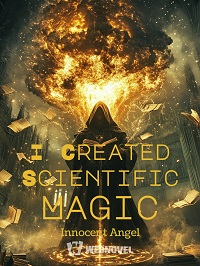




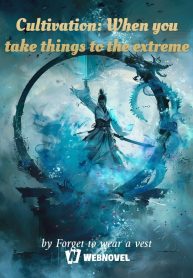

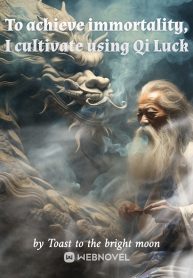
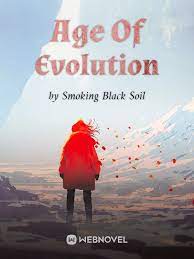
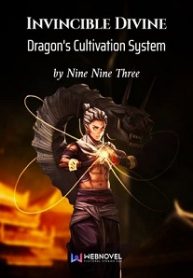
-1583-75x106.jpg)

